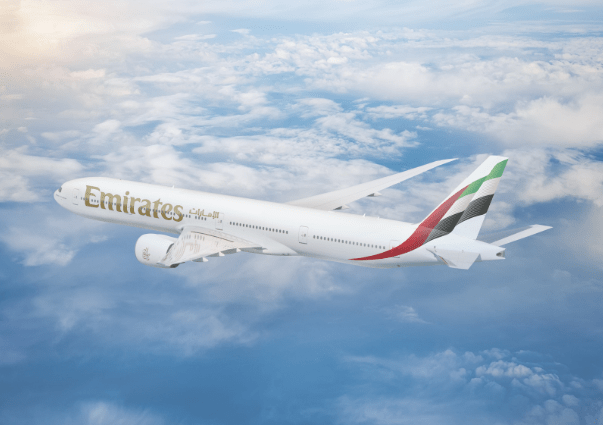From 1 October, Emirates passengers will no longer be allowed to use portable power banks during flights, following growing safety concerns about the risk of fires, explosions and toxic fumes from lithium-ion batteries.
The Dubai-based airline said the ban comes after a comprehensive safety review, making it the latest global carrier to restrict in-flight use of these popular portable chargers.
Power banks under scrutiny
Power banks – small, rechargeable devices used to charge mobiles, tablets, laptops and cameras – have become travel essentials.
But the lithium-ion batteries inside them have a track record of overheating, especially when damaged or overcharged. Aviation safety experts warn that this can spark dangerous onboard incidents.
Passengers on Emirates flights will still be able to carry one power bank, but with strict conditions:
- It must have its capacity rating clearly visible.
- It must be stored in the seat pocket or under the seat in front, not in the overhead lockers.
- It cannot be placed in checked baggage.
The new rule prohibits their use in the cabin to avoid “dangerous consequences like fire, explosions, and the release of toxic gases.”
Global airline safety trend
Emirates said: “There has been a significant growth in customers using power banks in recent years, resulting in an increasing number of lithium battery-related incidents onboard flights across the wider aviation industry.
New regulations will significantly reduce risks associated with power banks by prohibiting their use while onboard the aircraft. Storing power banks in accessible locations within the cabin ensures that in the rare event of a fire, trained cabin crew can quickly respond and extinguish the fire.”
The Emirates power bank ban mirrors similar measures already enforced by airlines across Asia, including Singapore Airlines, Cathay Pacific and Thai Airways. South Korea tightened its lithium battery flight rules earlier this year after an Air Busan plane fire in January.
In the US, Southwest Airlines now requires passengers to keep portable chargers in plain sight during use, citing repeated overheating incidents.
Rising incident numbers
According to the US Federal Aviation Administration, lithium battery overheating incidents on aircraft rose to three every two weeks in 2024 – compared to under one a week in 2018.
UK Civil Aviation Authority advice
The UK CAA permits spare lithium-ion batteries up to 160 Wh in cabin luggage, with a limit of two per passenger, and they must be individually protected against short circuits. Checked baggage remains off-limits.
Glenn Bradley, head of flight operations at the CAA, said: “Lithium batteries power everything from vapes and mobile phones to cameras and power banks. If they become faulty or damaged, they can cause an intense fire that is difficult to extinguish, both in the cabin or hold of an aircraft.
Correct handling reduces risk. Lithium batteries should be carried in your carry-on baggage. Power banks and spare batteries should also be in a cabin bag and should be completely turned off and not in standby mode.”
The Foreign Office urges passengers to check their airline’s battery restrictions before travelling. For Emirates customers, the message is simple: you can still bring your power bank, but from 1 October, you won’t be able to use it once you’re in the air.
This move is expected to push other carriers to review – and possibly tighten – their own airline safety regulations regarding lithium batteries.






